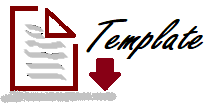RESILIENSI SOSIAL KOMUNITAS NELAYAN PESISIR DALAM MENGHADAPI FENOMENA PERUBAHAN IKLIM
(1) Universitas Negeri Makassar
(2) Universitas Negeri Makassar
(3)
(4)
(*) Corresponding Author
DOI: https://doi.org/10.56680/slj.v5i1.51320
Abstract
This study was conducted with the aim of determining the resilience of fishing communities in Barru District, Barru Regency in facing the phenomenon of climate change. This research is a qualitative descriptive research. Data collection techniques use observation, interviews and documentation. Data analysis techniques use descriptive-qualitative analysis through the stages of data reduction, data presentation and conclusions. The results of this study show that traditional fishing communities and modern fishermen in the coastal areas of Barru District have felt the impact of climate change that affects the lives of fishing communities in environmental, socio-economic and physical aspects. For this reason, the ability of fishing communities to reduce vulnerability is demonstrated through adaptability at the level of stability, recovery and transformation. Resilience at the level of stability is carried out by surviving by utilizing family savings. At the level of recovery, the adaptation capacity of traditional fishing communities and modern fishing communities can be said to be high through survival by utilizing Human Resources (HR) assets by looking for other jobs outside of fishing activities but having low adaptation when dependent on bad weather. Traditional coastal fishing communities have limited supporting facilities in the process of marine activities so that they cannot be said to be at the level of transformation. Modern fishing communities have been at a level of transformation by increasing vessel tonnage, procuring new vessels and replacing fishing gear.
Keywords
Full Text:
PDFReferences
Ancaman Perubahan Iklim Harus Diantisipasi Secara Menyeluruh. (n.d.). Tribunnews.
Dwiartama. (2014). Membangun kerangka teoritis untuk memahami resiliensi sistem pertanian-pangan di Indonesia. Akatiga.
K. Panjaitan, N., Adriana, G., Virianita, R., Karlita, N., & Intan Cahyani, R. (2017). Kapasitas Adaptasi Komunitas Pesisir Pada Kondisi Rawan Pangan Akibat Perubahan Iklim (Kasus Sebuah Komunitas Nelayan Di Jawa Barat). Sodality: Jurnal Sosiologi Pedesaan, 4(3). https://doi.org/10.22500/sodality.v4i3.14736
Kolopaking, L. M. (2011). Konsep, Metode, dan Instrumen Penilaian Kerentanan Rumah Tangga di DAS Citarum. Materi pada Workshop TA ADB 7189 – Paket E.
Nahdtah, St Nurul, D. (2017). Pemetaan Prediksi Zona Potensial Penangkapan Ikan Pelagis Kecil Perairan Selat Makassar-Laut Flores. Jurnal Sains Dan Teknologi, 17(2), 172–178.
Ridder, H.-G. (2014). Book Review: Qualitative data analysis. A methods sourcebook (Vol. 28, Issue 4). Sage publications Sage UK: London, England.
Rusdi, R., Titus Adeyemi, A., & Padli, F. (2023). Local Community Adaptation to Flood Disaster In Soppeng District. JAMBURA GEO EDUCATION JOURNAL, 4(1), 84–91. https://doi.org/10.34312/jgej.v4i1.18817
Sinambela, S. I. (n.d.). Asean Terhadap Kesejahteraan Nelayan ( Studi Kasus : Kecamatan Medan Belawan ). 93–108.
Suhaeb, F. W., & Rahman Sakka, A. A. (2022). Strategi Mencari Nafkah Keluarga Nelayan Pada Masa Paceklik. Phinisi Integration Review, 5(1), 86–95.
Sulawesi Selatan Waspadai Cuaca Ekstrim. (2022). Floresku.
Ulfa, M. (2018). Persepsi Masyarakat Nelayan dalam Menghadapi Perubahan Iklim (Ditinjau dalam Aspek Sosial Ekonomi. Jurnal Pendidikan Geografi, 23(1), 41–49. https://doi.org/10.17977/um017v23i12018p041
Article Metrics
Abstract view : 39 times | PDF view : 0 timesRefbacks
- There are currently no refbacks.
Copyright (c) 2024 Firdaus W Suhaeb, Ernawati Syahruddin Kaseng

This work is licensed under a Creative Commons Attribution-NonCommercial 4.0 International License.














